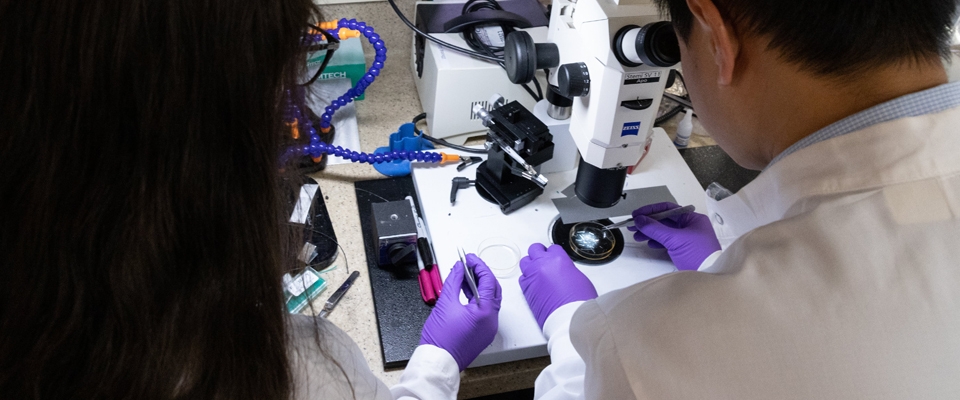You are here

Pain is a major health and socioeconomic burden because of its high prevalence, negative influence on patients’ physical and emotional conditions, and huge costs to society through lost productivity. The role of the Center for Pain & Sensory Recovery is to foster collaboration between experts across the Institute, sharing of expertise, animal models and equipment, and to establish a basic and multidisciplinary infrastructure for pain research.
Investigators of the Center for Pain & Sensory Recovery at Burke Neurological Institute aim for a better understanding of pain mechanisms as well as translation of bench findings to the clinic. Our main research areas include:
- The spinal cord and how it coordinates and processes the variety of signals it receives to act as a “gatekeeper” for nociceptive, mechanoceptive and proproceptive sensations. As part of ongoing spinal cord injury research, we investigate how injuries disturb the signaling pathways and result in inflammatory and neuropathic pain.
- Cellular mechanisms, involving surface receptors, signaling molecules and distinct cell compartments in both sensory neurons and surrounding non-neuronal cells, underlying the neuroplastic events that cause pain to turn chronic after an injury.
- The genetic programs along all levels between the peripheral sensory neurons and the brain that enable nerve stimulation to interfere with pain transmission.
- Small molecule screens for low-toxicity inhibitors of nociceptive signaling.
Together we are creating innovative ideas to provide options for practitioners and relief for patients.

